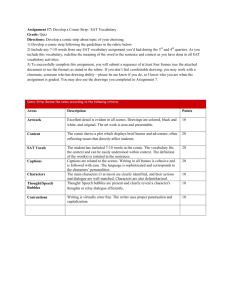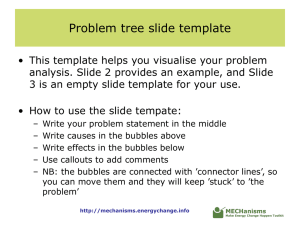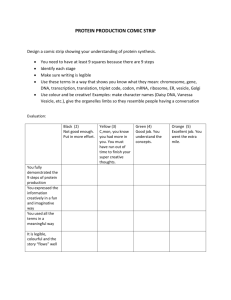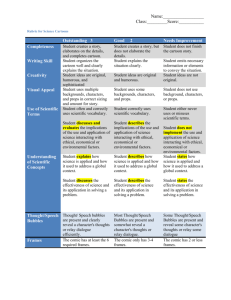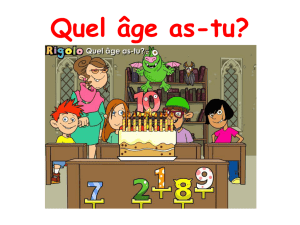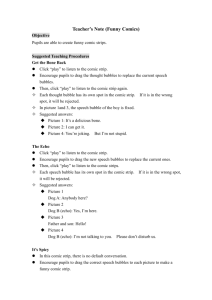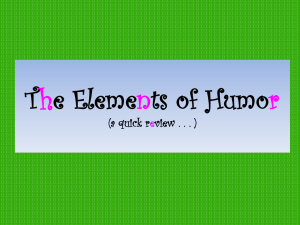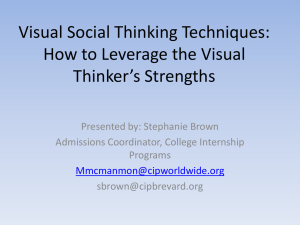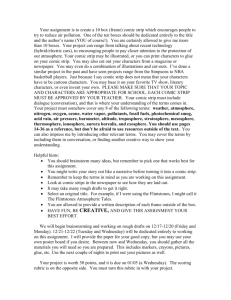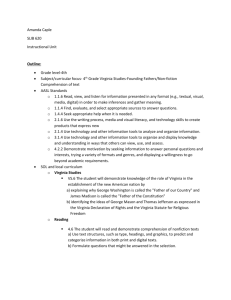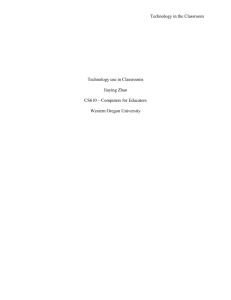Description of Strategy: Using images to generate
advertisement
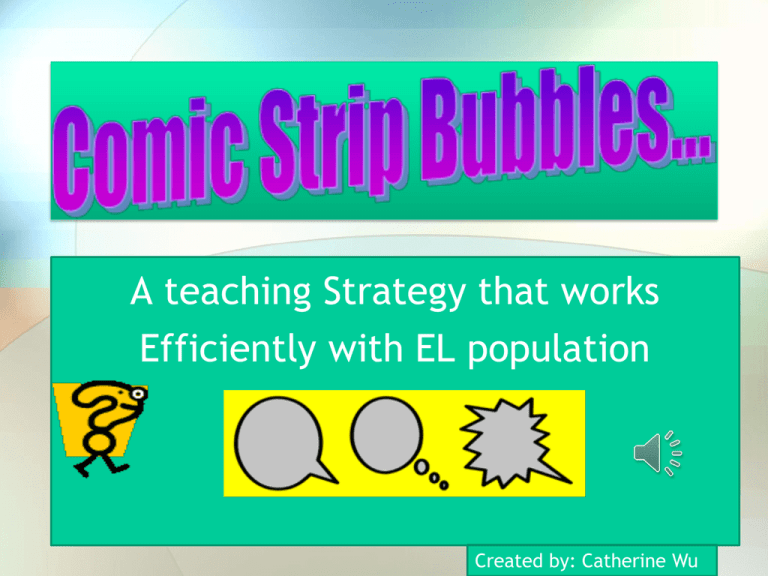
A teaching Strategy that works Efficiently with EL population Created by: Catherine Wu Introduction: Introduction • Description of Strategy: Using images to generate humorous language play is vital to making language development meaningful for Intermediate Level ELLs. Students will practice writing skills in a fun and creative manner. Filling in cartoon bubbles is an excellent exercise. This activity is ideal for a learning center activity. Comprehensible input: • STUDENTS PRE-READ THE STORY OF MULAN, THEN DISCUSS THE WORDS AND SENTENCES THAT THEY DON’T UNDERSTAND. TEACHER PROVIDES MEANING AND EXPLANATION. • HAVE STUDENTS SUPPLY THEIR OWN WORDS FOR THE PICTURES/Bubbles IS AN EASY AND MEANINGFUL WAY TO USE WRITTEN LANGUAGE. • PRIOR TO WRITING IN THE BUBBLES, ASK STUDENTS TO WRITE AND EDIT THEIR WORDS ON A SEPARATE SHEET OF PAPER. THIS ALSO GIVES THE WRITER AN INDICATION OF THE SPACE AND THE SIZE OF THE LETTERS TO USE. • This IS AN OPEN-ENDED LESSON, EACH STUDENT MAKES HIS/HER OWN WRITING, AND THEN WRITE IT IN THE TEMPLATE. • Remember : This is used strictly for educational purpose. Description of Language Use: 1) Key words of the strategy: comic book, comic strip, cartoon, speech bubble, thought bubble, edit, template. 2) Discuss the words and sentences that are new to them from the (Mulan) story after the reading. Words: village, scroll, warrior, retired general, disguise, military, emperor, incredible courage, frail, regret, rouge, transformed, accomplish, inspire. Structures: Although…; too… not to…; would…beyond…; transform into…; no matter how…. 3) Language function: listening, speaking, reading , and writing. • Use visuals, shorter sentences, and simpler syntax • Maintain a low anxiety level, Wait time • Be Enthusiastic , Modeling ,Clarify meaning in Context • Speak slowly and enunciate ,Use gesture and body language • Watch carefully for comprehension and be ready to restate to clarify your meaning whenever necessary HOW YOU WILL TEACH IT… • 1) COMIC STRIP BUBBLES ARE THE ROUNDED SHAPES IN COMIC STRIPS WHERE DIALOG OR THOUGHTS APPEAR. 2) EXPLAIN HOW A COMIC STRIP WORKS. THE DIFFERENCE BETWEEN SPEECH, THOUGHT, AND EXCLAMATION BUBBLES. 3) SHOW STUDENTS A COMPLETED COMIC STRIP AND A BLANK TEMPLATE. 4) EXPLAIN TO STUDENTS, THEY WILL CREATE THEIR OWN COMIC STRIPS AFTER READING THE STORY OF MULAN ( or others). 6) CREATE DIALOG AND THOUGHTS INDIVIDUALLY OR IN PAIR GROUP TO FILL IN BUBBLES. 7) STUDENTS ARE PROVIDED WITH A TEMPLATE WITH SPEECH BUBBLES. • Be Creative …

